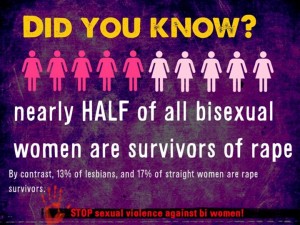By: Betty J. Woodman
One evening years ago in California, I sat in a shelter with a small, dignified-looking bruised woman in her 70’s.
She had been married for more than 50 years to a violent but churchgoing man.
 Sometimes after church on Sundays, he would begin drinking. By dinnertime, he’d be in a nasty mood and arguments would turn violent. If her bruises were healed by the following Sunday, they’d go to church — her husband smiling and chatting with their other church-going friends. If not, they’d skip church.
Sometimes after church on Sundays, he would begin drinking. By dinnertime, he’d be in a nasty mood and arguments would turn violent. If her bruises were healed by the following Sunday, they’d go to church — her husband smiling and chatting with their other church-going friends. If not, they’d skip church.
My heart broke for her as she spoke of her years of pain and silence. Over the years, she had many conversations with her minister, looking for guidance on how to deal with the abuse. Apparently unable to perceive the smiling man who regularly attended and financially supported the church to be culpable of such abuse, he had counseled her.
He asked what she had done to upset her husband and why she had provoked him. He told her that the Bible did not support her leaving him. Rather than strengthening her, this minister had, perhaps unintentionally, helped to perpetuate an unchanging, spiritually destructive marriage in the name of God.
A devout Christian, she sat quoting Scripture to me, sobbing now, desperately wanting to do the right thing. For a few moments, I didn’t know what to say, nearly overwhelmed with despair at the under-appreciation of violence as a compelling spiritual issue.
This a good time to note the important role religion can play in reducing violence in our communities.
Clearly God’s love is not about soul-crushing human behavior. While this woman’s situation was eventually recognized by her religious community — she left her husband with the support of friends from church — too often domestic violence goes unnoticed, with many mistakingly believing that it happens somewhere else or involves people they don’t know.
Unfortunately, those men with high needs to dominate women are comfortable with the gender hierarchies perpetuated by many religions because they support their desire to control another individual.
The consequences are great. This year, more women and their children will die at the hands of their husbands or boyfriends. Others will wither in a slow spiritual death. Children who learn violence in the home are at significantly higher risk of growing up to perpetuate violence against strangers in their communities, wreaking despair not only in their own lives but in the lives of the families touched by their violence.
Thinking about this gentle woman, I had a chilling thought. Was I, like her minister, an accomplice? Not intentionally, of course, but by not fully using my voice loudly, clearly, and persuasively, had I and others like me contributed to a culture where people look the other way?
Had I ever let minor sexist comments slide, while recognizing their role in shaping a common consciousness, saving my battles for larger offenses lest I be labeled something unappealing?
But isn’t that pressure a human-devised obstacle, blocking the way in a spiritual battle? Jesus didn’t bow to social or cultural pressures. Rather, he defied restrictive norms regarding women to speak openly with women, as well as slaves, to teach women and include them among his followers, to have women witness to his healings and miracles.
 Ultimately I decided that, no, I hadn’t been an accomplice, but that moral responsibility requires speaking out, contributing to an empowering process that strengthens us all, in the name of the God who gifted us ourselves.
Ultimately I decided that, no, I hadn’t been an accomplice, but that moral responsibility requires speaking out, contributing to an empowering process that strengthens us all, in the name of the God who gifted us ourselves.
We have the power to end domestic violence, but like terrorism, it requires a massive, unified, longer-term effort, focused not only on dissuading the batterers, but also on educating those who may encourage them, whether overtly or unwittingly.
____________________________________________________________________________________________________
Originally published @ The Atlanta Journal-Constitution 10/13/2001
In the Name of God,



